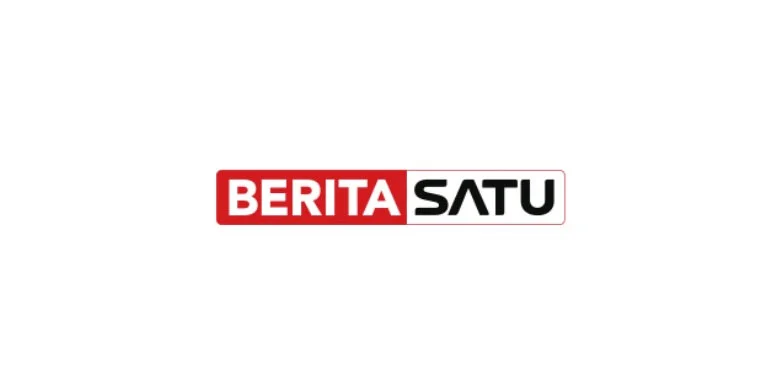Article Directory
There’s a strange and fascinating spectacle unfolding in Jakarta right now. Imagine this: the nation’s top ministers, the very people steering the ship of state, are stepping away from their policy briefs and into the bright, sterile glow of a brand-new television studio. They’re sitting behind the anchor’s desk at Beritasatu TV, a teleprompter reflecting in their eyes, reading the day’s news to the public.
One by one, they’re taking their turn. Migrant Worker Protection Minister Abdul Kadir Karding grins for the camera, remarking how "fun" it is and joking about a new career. Deputy Cooperatives Minister Ferry Juliantono admits to a case of nerves before marveling at the complex, collaborative effort behind the scenes. It’s a polished, modern, and undeniably slick media event, celebrating the launch of B-Universe Media Holdings’ cutting-edge new facility. On the surface, it’s a story about communication, transparency, and a government trying to connect with its people in a new way.
But I can’t shake a feeling of profound dissonance. When I first saw these two stories—Prabowo's Ministers Make Their News Anchor Debut on Beritasatu TV and Indonesia’s Textile Industry Braces for Job Cuts as US Tariffs Loom—I honestly just sat back in my chair, speechless. Because while the cameras roll in that pristine studio, a completely different, unscripted, and far more terrifying narrative is being written in the factories and workshops across the country. And the question that keeps echoing in my mind is: are we watching the right channel?
The Illusion of the Teleprompter
There’s a seductive power to a teleprompter. It offers a perfectly crafted script, a controlled reality where every word is chosen, every pause is deliberate, and every outcome is known. For the ministers enjoying their time in the anchor’s chair, the experience is, as they say, "fun." It’s a performance. They are presenting a version of the world that is orderly, manageable, and fits neatly into a broadcast segment. Minister Karding even said he was "hooked" and wanted to come back every weekend.
But what happens when the real world refuses to follow the script?
While these polished performances are being broadcast, a brutal economic reality is bearing down on Indonesia’s textile industry. A new 32 percent US import tariff is set to slam into place on August 1st, a move that threatens to cripple one of the nation’s most vital, labor-intensive sectors. This isn't a theoretical problem or a distant political squabble; this is about people. We're talking about an industry that employs millions, and the numbers are already grim. According to trade unions, 70,000 workers lost their jobs in the first four months of this year alone. Benny Soetrisno, the chairman of the Indonesian Exporters Association, is sounding the alarm, warning that widespread layoffs are not just possible, but probable.

This is the kind of story that doesn't fit neatly on a teleprompter. It’s messy, painful, and doesn’t have an easy resolution. The contrast is jarring, almost surreal. It’s like watching the captain of a cruise ship meticulously arrange a new set of deck chairs while the ship’s navigator is screaming about an iceberg dead ahead. The new studio, with all its technological prowess, represents a phenomenal tool for mass communication. But what is the ultimate purpose of such a powerful instrument? Is it for performance, or for confronting the difficult truths that lie just outside the studio walls?
The Unwritten Script
Let’s be clear about what’s at stake here. The United States is Indonesia's second-largest export market, and ready-made garments represent a staggering $1.27 billion slice of that pie in just the first five months of 2025. This is a labor-intensive sector—in simpler terms, it means it's powered by people, not just machines. It's powered by the hands of countless men and women whose livelihoods depend on the hum of sewing machines and the steady flow of international orders.
The speed at which a single policy decision in Washington can translate into tens of thousands of lost jobs in Jakarta is just staggering—it’s a brutal reminder of how interconnected our world is and how vulnerable so many are to decisions made thousands of miles away. This isn't just an economic headline; it’s a human crisis in the making. Benny Soetrisno’s plea for government support, invoking the emergency measures of the COVID-19 pandemic, should be a five-alarm fire.
This is the kind of breakthrough that reminds me why I got into this field in the first place—to understand how technology and communication can shape our future. But with great tools comes an even greater responsibility. A state-of-the-art broadcast studio is a megaphone capable of reaching millions. It can be used to celebrate, to entertain, and to project an image of calm and control. Or, it can be used to rally a nation, to inform citizens of a coming storm, to have the difficult, unscripted conversations about how to navigate the treacherous waters ahead.
The current situation feels like a modern-day version of the printing press being used exclusively to print party invitations while the city outside is on fire. What message does it send to a textile worker, who is terrified of losing their job, to see their leaders trying out a new hobby on television? Does it inspire confidence? Or does it create a chasm of disconnect, a sense that the people in charge are living in a different reality altogether?
The Signal and the Noise
Ultimately, this isn't a critique of a single media event. It's a reflection on a much larger choice we all face in this hyper-connected age. We are constantly bombarded with information, with polished narratives and carefully managed spectacles. The real challenge is learning to distinguish the signal from the noise. The signal is the looming economic crisis that threatens the livelihoods of tens of thousands of families. The noise is the pleasant, distracting, and ultimately hollow performance of power. The most advanced technology in the world is meaningless if it’s pointed in the wrong direction. The real story isn't being read from a teleprompter; it’s being lived in the factories, and we must demand that our leaders, and our media, tune into that channel before it’s too late.



